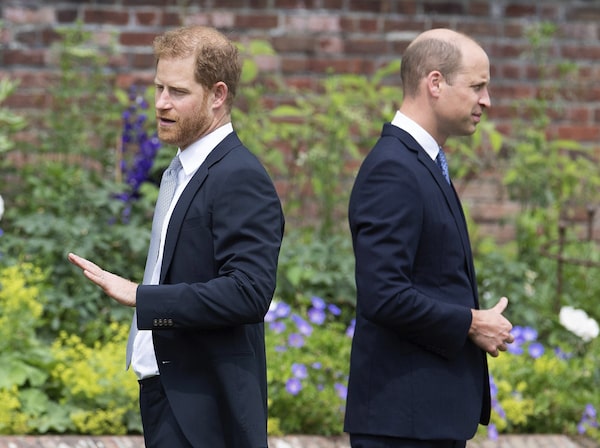Good evening, let’s start with today’s top stories:
Russian President Vladimir Putin’s call Thursday for a ceasefire in Ukraine to mark Orthodox Christmas was immediately rejected by Kyiv, which retorted that Moscow should withdraw its troops if it desires an end to hostilities.
It was unclear whether Russian forces would still be bound by Mr. Putin’s order to hold their fire for 36 hours, beginning at noon Friday and lasting all day Saturday, Orthodox Christmas Day. It is the first time Mr. Putin has called for a pause in the fighting since he ordered a full-scale invasion of Ukraine last February.
He gave the order for a ceasefire along the almost 1,000-kilometre-long front line after an appeal Thursday from Patriarch Kirill, the head of the Russian Orthodox Church. Patriarch Kirill is a long-time ally of the Russian President and a staunch supporter of the war. He has repeatedly blessed troops before their deployment to Ukraine and has preached that dying in military service “washes away all sins.”
Read more:
Ukrainian servicemen fire a shell from a 2A65 Msta-B howitzer towards Russian troops, amid Russia's attack on Ukraine, in a frontline in Zaporizhzhia region, Ukraine, Jan. 5, 2023.STRINGER/Reuters
Nuclear reactor pressure tubes are deteriorating faster than expected. Critics warn regulators are ‘breaking their own rules’
The Canadian Nuclear Safety Commission has allowed utilities to operate tubes beyond licensing limits, a crucial concession for the nation’s aging reactors.
Each of Canada’s 19 operating CANDU reactors – including the eight at Canada’s largest nuclear power plant, the Bruce Nuclear Generating Station – contains several hundred pressure tubes. They deteriorate as they age, gradually increasing their propensity to fracture. So the industry has developed elaborate systems to monitor that deterioration, and mathematical models to predict when tubes will no longer be fit for service. CNSC officials have reassured outsiders that this approach is systematic and thorough.
But news from Bruce Power revealed that the system had broken down. In an e-mail to colleagues written shortly after the discovery, Vali Tavasoli, director of the CNSC’s operational engineering assessment division, noted that the regulator already knew pressure tubes absorb deuterium (an isotope of hydrogen) more quickly as they near the end of their lives, making them brittle and more prone to failure.
Read more:

Canada has four functioning nuclear power plants, clockwise from top left: The Pickering, Darlington and Bruce Power facilities in Ontario, and the Point Lepreau generating station in New Brunswick.The Globe and Mail, The Canadian Press, Handouts
Prince Harry says William knocked him to floor in row over Meghan
Britain’s Prince Harry says his older brother and heir to the throne Prince William knocked him to the floor during a 2019 argument over Harry’s American wife Meghan in his much-awaited memoir which went on sale days early in Spain on Thursday.
In his book “Spare,” Harry also discloses how the brothers, the sons of King Charles, had begged their father not to marry his second wife Camilla, now Queen Consort, and that he had taken cocaine as a teenager.
The book was due to be published on Jan. 10, but the Guardian newspaper printed leaked extracts overnight, and Reuters and other media have been able to obtain Spanish-language versions which went on sale early in Spain. You can read about the book’s biggest bombshells here.
Read more:

Prince Harry, left, and Prince William stand together during the unveiling of a statue they commissioned of their mother Princess Diana, on what would have been her 60th birthday, in the Sunken Garden at Kensington Palace, London, July 1, 2021.Dominic Lipinski/The Associated Press
This is the daily Evening Update newsletter. If you’re reading this on the web, or it was sent to you as a forward, you can sign up for Evening Update and more than 20 more Globe newsletters here. If you like what you see, please share it with your friends.
ALSO ON OUR RADAR
McCarthy’s concessions fail to win support for U.S. House speaker bid: Kevin McCarthy offered to reduce the clout of the U.S. House speaker’s job on Thursday in a failed bid to persuade hardline Republican colleagues to back his candidacy, raising questions about their party’s ability to wield power.
Pope Benedict’s funeral was simple, fairly small and brought the ‘two popes’ era to an end: The simple ceremony, which began at 9:30 a.m. on Thursday, saw an incumbent pope presiding over the funeral of another pope – unprecedented in modern times. It symbolized the end of the strange “two popes” era.
Toronto home prices down 19 per cent from record high in March: Canada’s two largest housing markets closed 2022 with another loss in December, bringing Toronto home prices down 19 per cent and Vancouver 10 per cent from record highs set earlier in the year, as borrowers continued to struggle with higher interest rates.
The unfortunate market reality: Financial corrections take time, and there’s (very likely) more pain to come: Everyone wants it to be over. The interest-rate hikes. The housing crash. The stock-market correction. The reality: The worst, very likely, hasn’t hit yet.
Fast-rising startup ApplyBoard quietly replaced CEO with co-founder brother last fall: Kitchener, Ont., school-application startup Applyboard Inc. quietly replaced chief executive officer Martin Basiri with his brother Meti Basiri last fall after nearly seven years leading one of Canada’s fastest-growing tech companies.
MARKET WATCH
Canada’s main stock index closed with losses Thursday, buoyed by strength in energy and metals, while US markets lost more than a per cent amid continued strength in the job market.
The S&P/TSX composite index was down 81.99 points at 19,506.84.
In New York, the Dow Jones industrial average was down 339.69 points, or 1.02 per cent, at 32,930.08. The S&P 500 index was down 44.87 points, or 1.16 per cent, at 3,808.10, while the Nasdaq composite was down 153.52 points, or 1.47 per cent, at 10,305.24.
The Canadian dollar traded for 73.72 cents UScompared with 74.03 cents US on Wednesday.
The February crude oil contract was up 83 cents at US$73.67 per barrel and the February natural gas contract was down 45 cents at US$3.72 per mmBTU.
The February gold contract was down US$18.00 at US$1,834.80 an ounce and the March copper contract was up eight cents at US$3.82 a pound.
Got a news tip that you’d like us to look into? E-mail us at tips@globeandmail.com. Need to share documents securely? Reach out via SecureDrop.
TALKING POINTS
The ‘worst year’ in global superpower relations leaves Canada vulnerable
“Since Confederation, Canada has had the fortune of being partnered with and protected by two dominant world powers: Britain and the United States. In a new tripolar world, with American paramountcy significantly diminished, that degree of comfort is reduced, with dire implications for our security and economic health.” – Lawrence Martin
Canadians need answers on health funding
“A full public airing of where the provinces, territories and Ottawa stand when it comes to health care funding and expectations early in 2023 could serve as a catalyst for action. We’re at that desperate point, a few months away from a federal budget no less, where Canadians expect their politicians to move beyond their impasse and do something.” – Kelly Cryderman
Our polarized politics look like they’ll get worse in 2023
“No, Mr. O’Toole has not switched sides after being ousted as leader in the early days of last winter’s occupation of downtown Ottawa by opponents of vaccine mandates. But he appears to have had a change of heart after learning the hard way about what happens when attempts to feed popular anger for political gain turn against you.” – Konrad Yakabuski
LIVING BETTER
Exhausted? You’re not alone. Here’s what to do about it
If you are exhausted and you’re not quite sure why, take heart: You are not alone. We’ve experienced the COVID-19 pandemic for three years now, and each stage of the journey has brought with it a new version of “tired.”
The first was an adrenaline-fueled tiredness, a jittery overvigilance when lockdowns first took place, compelling us to abide by rules and stay safe. The second was a turbulent kind of tired. The world opened back up, and then shut down again with Omicron – and we battled emotions that ranged from resignation (sigh, masks on again) to fury (trucks descending on Ottawa, horns blazing).
Now, with the worst of COVID-19 seemingly behind us, we’ve entered what perhaps can best be described as a hard-to-define kind of tiredness: an existential sort of world weariness that, for many, has been hard to shake. So why is a significant segment of the population still reeling from the pandemic and its echo effects? Steven Taylor, a professor and clinical psychologist at the University of British Columbia, offers a simple explanation.
TODAY’S LONG READ
Lisa LaFlamme and 10 other notable Canadians on the power of a fresh start

Journalist Lisa LaFlamme (left), Gisele Lullaby, this year's winner of Canada’s Drag Race (centre) and Scotiabank Giller Prize winner Suzette Mayr (right).Ted Belton/Handout/Leah Hennel/Supplied
We asked headlining Canadians – from Giller prize winner Suzette Mayr to Canada’s Drag Race star Gisèle Lullaby – to reflect on their last year and what they hope for in 2023. The consensus: There’s always room to grow.
Evening Update is written by Emerald Bensadoun. If you’d like to receive this newsletter by e-mail every weekday evening, go here to sign up. If you have any feedback, send us a note.